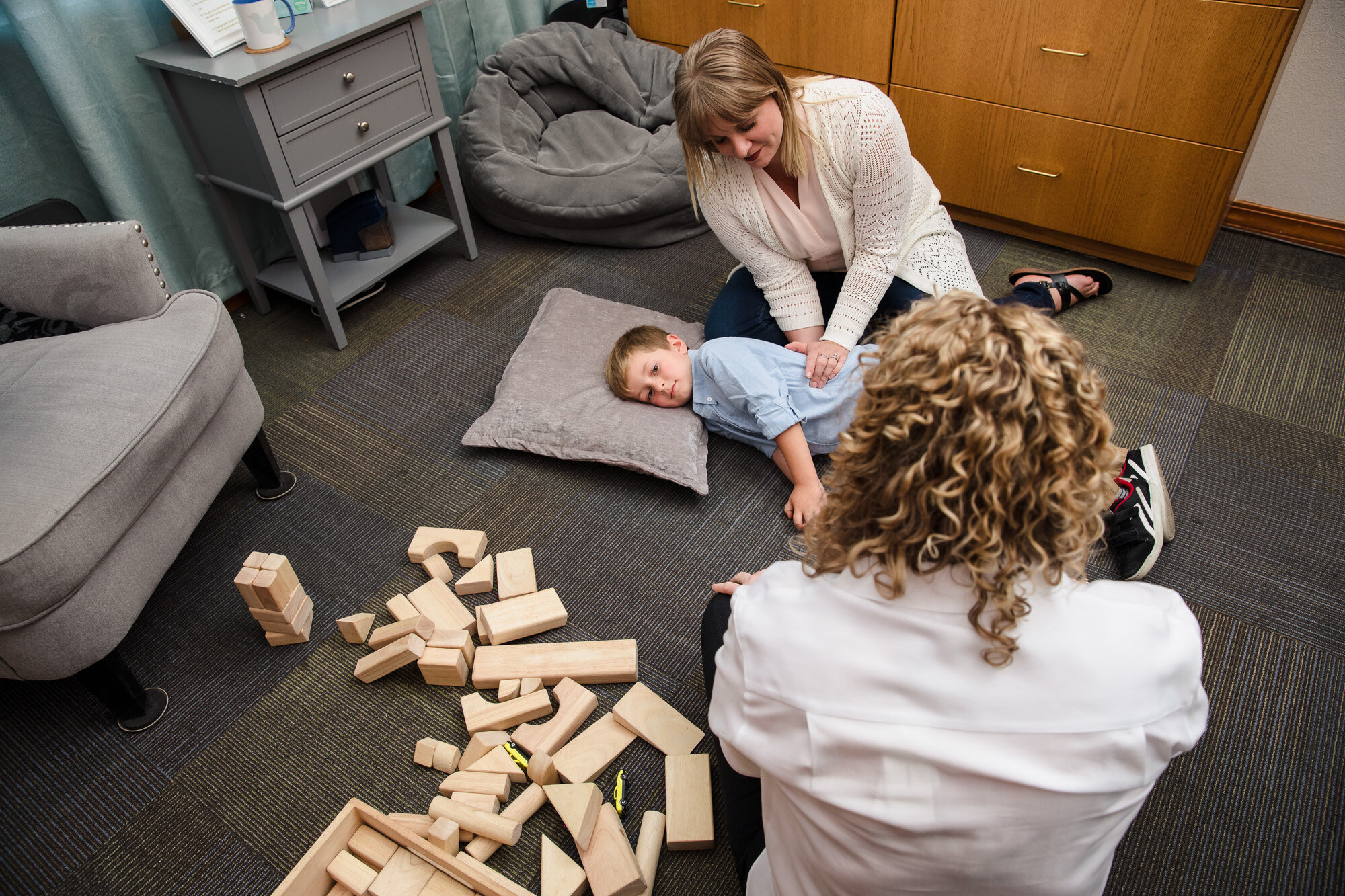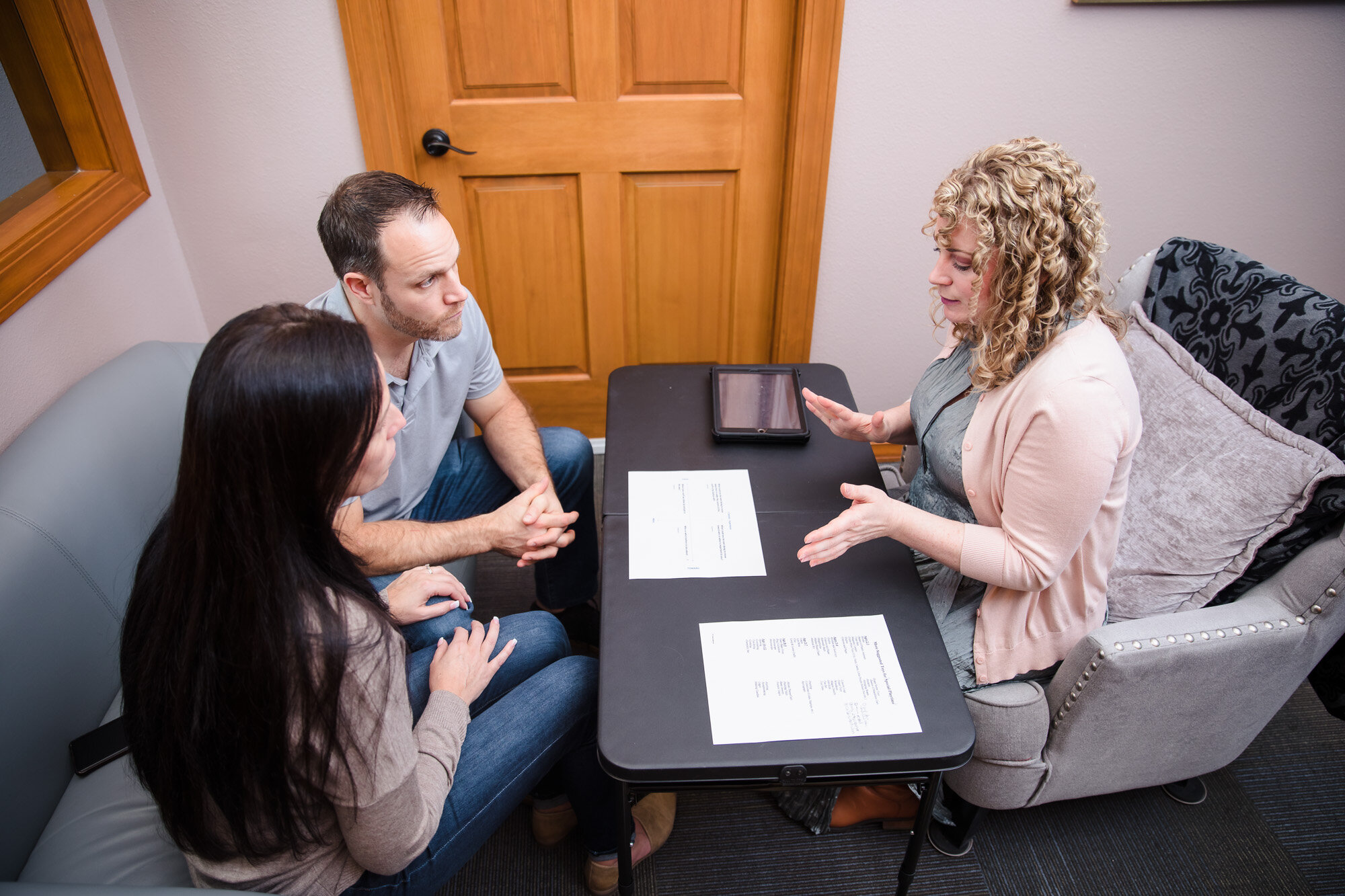Research is getting better at understanding the symptoms of autism in adults, and especially in women, who have historically compensated for their difficulties with their many strengths. More and more adults and women are seeking diagnosis of Autism Spectrum Disorder due to lifelong feelings that something wasn’t quite right. With proper diagnosis and treatment that brings insight and self-acceptance, and building new coping skills, many autistic adults learn to see their autistic features as strengths. Families with an autistic individual learn to see the creative, loving, and passionate side of their loved one while accepting and supporting their family member’s difficulties. If you or a loved one have thought about whether autistic characteristics might play a role in your life experience, it’s never too late to get a neuropsychological evaluation to determine the extent to which this might be true.
Dr. Hayward specializes in autism assessment through a comprehensive evaluation process to ensure your individual history, perspective, and needs are included in recommendations and when formulating any diagnoses.
Features of adult autism are the same as those diagnosed in children with autism; however, many times the diagnosis goes unnoticed because the autistic person is able to compensate for symptoms so well in their everyday environment. My professional experience indicates that some autistic individuals will do very well in highly structured environments where social rules and roles are clear and consequences are easily anticipated. Families, classrooms, the military, and professions that support this type of environment may lead an individual to have better adaptive functioning while in these settings. The exact opposite is also true: families that tend toward spontaneity, classrooms without clear behavior management and learning structure, and professions without clear hierarchies of command and expectations of behavior can be more difficult.
Many times an adult will come in for Autism Spectrum Disorder (ASD) diagnostic assessment only when there’s been a big change in their life that has removed the supportive structure and resulted in a decrease in their adaptive functioning. This doesn’t mean the adult only started to experience difficulties at that recent point in time, but rather that the adult was able to manage their difficulties with great effort until the supportive structure was removed, then they floundered.
In fact, many autistic adults report having noticed their difficulties with social skills across their life. This is especially true for women with autism. They can describe a sense of “faking it” in social situations and aping peers social behaviors when they weren’t quite sure what to do. Sometimes a close friend or family member will serve as an interpreter of social skills for the autistic adult, helping them to better navigate friendships, school, dating, and work life.
A big myth of autism is that the autistic person lacks empathy and doesn’t want to socialize. Those two things are completely untrue. Autistic individuals have great ability to empathize with others and feel all the emotions that any person feels. People with autism are at a higher risk for developing anxiety and depression because, in part, they are aware that they are having difficulties relating to others, may feel excluded, and want to socialize more than their opportunities allow.
Many autistic individuals who receive an ASD then have access to supportive therapies and groups that help them to build their self-esteem, social skills, and support their family members and friends in providing empathetic support. Additionally, the autistic adult community has created a vocal, supportive community that allows individuals to explore how they want to engage with their autistic identity. There is strong support for a neuro-diverse perspective, which sees autism as a normal variation in neurological patterns. They vastly prefer limiting the use of “autism spectrum disorder” because it implies that having autism is bad, and they prefer simply using “autism” to describe their social, sensory, and behavior patterns and preferences. The autistic adult community also vastly prefers identity-first language (i.e., autistic person) rather than person-first language (i.e., person with autism). The reason is that many autistic people feel that they cannot separate their personhood from their autism; it is part of what makes them who they are.
Dr. Hayward values each individual’s choice in how they are addressed. When working with patients, she inquires about preferences in language used (e.g., pronouns, person-first or identity-first language). When giving educational material generally on her resource library, she uses a mix of person-first and identity-first language, with identity-first being chosen for topics related to adults and person-first being chosen when the content is directed at parents seeking evaluation of a child who is not yet identified as autistic.
Updated 04/13/2024
Want to learn more?
Click a picture below to learn more!







